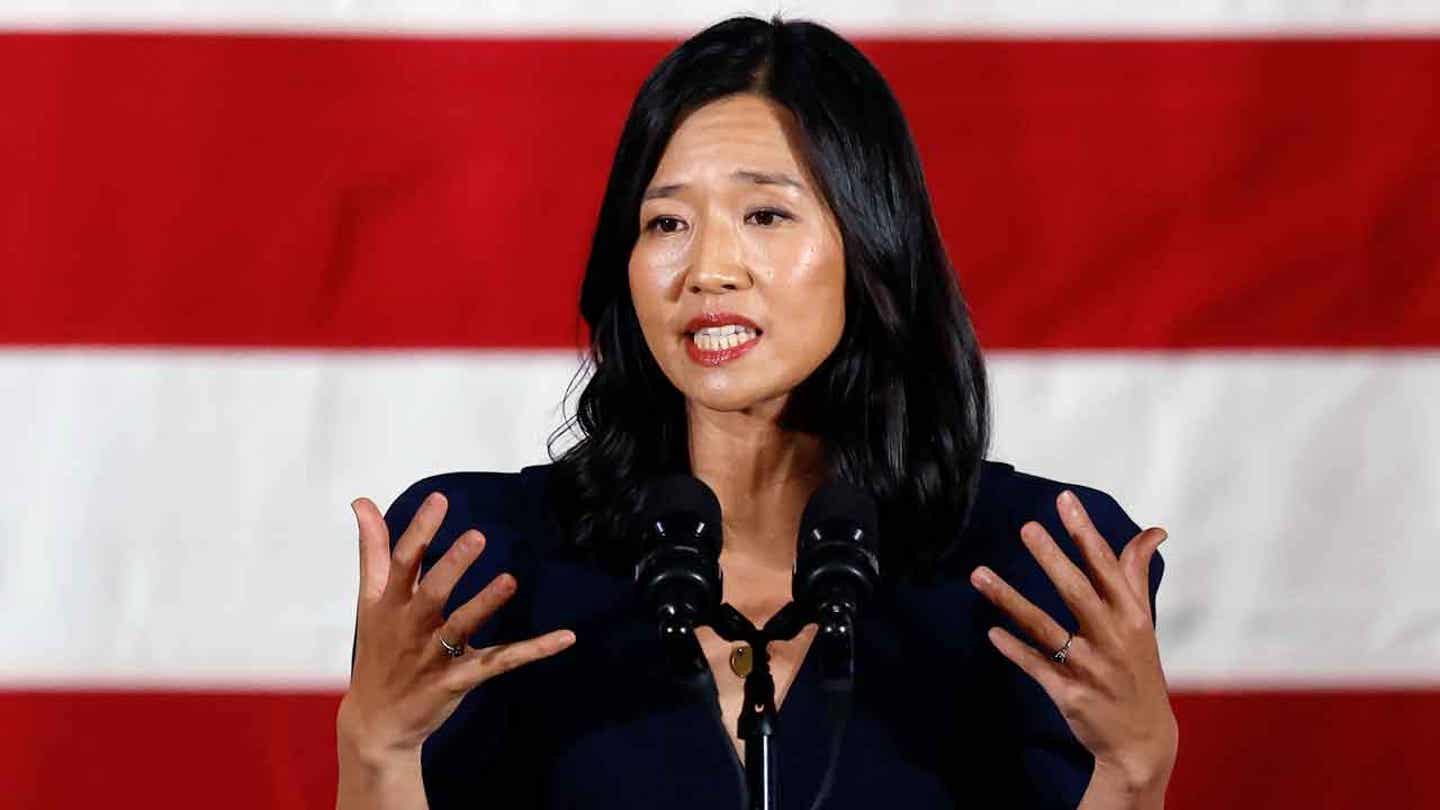
2025 NFL Week 7 Buzz: DJ Moore, Puka Nacua Not Practicing
Entities mentioned:
- Puka Nacua: Determination, Competitive spirit, Professional pride
- DJ Moore: Ambition, Self-preservation, Competitive spirit
- Justin Fields: Determination, Competitive spirit, Leadership
- Anthony Richardson: Self-preservation, Determination, Professional pride
- Baker Mayfield: Competitive spirit, Determination, Professional pride
- Za'Darius Smith: Self-preservation, Legacy, Security
Article Assessment:
Credibility Score: 75/100
Bias Rating: 50/100 (Center)
Sentiment Score: 35/100
Authoritarianism Risk: 20/100 (Strongly Democratic)
Bias Analysis:
The article presents a balanced view of multiple teams and players, focusing on factual injury reports. There's no apparent favoring of specific teams or narratives.
Key metric: NFL Player Availability
Let me tell you something, folks - this injury report is a GAME-CHANGER! We're seeing star players dropping like flies in the fourth quarter of a championship game! Puka Nacua and DJ Moore, two offensive powerhouses, are limping into Week 7 like they've just run a marathon. This is RIDICULOUS! The Bears and Rams are facing a third and long situation without their go-to receivers. And don't even get me started on Anthony Richardson - the rookie quarterback's season has been sacked by a freak warm-up incident! It's like watching a team's playbook go up in flames! The Buccaneers' receiving corps is so decimated, they might as well put the water boy in at wide receiver. But I'm telling you right now, Baker Mayfield is showing that championship mentality, stepping up to the plate despite his team being down to practice squad players. This is the kind of adversity that separates the contenders from the pretenders, folks!

How Curt Cignetti Landed Fernando Mendoza and Turned Him Into a Heisman Candidate
Entities mentioned:
- Fernando Mendoza: Ambition, Competitive spirit, Determination
- Curt Cignetti: Professional pride, Ambition, Competitive spirit
- Indiana Hoosiers: Competitive spirit, Recognition, Ambition
Article Assessment:
Credibility Score: 75/100
Bias Rating: 45/100 (Center)
Sentiment Score: 75/100
Authoritarianism Risk: 20/100 (Strongly Democratic)
Bias Analysis:
The article presents a balanced view of Mendoza's transfer and performance, with quotes from the coach and statistical data. It doesn't show significant partisan leanings, focusing on the sports angle.
Key metric: College Football Playoff Rankings
Let me tell you something - this story is RIDICULOUS! We're witnessing a GAME-CHANGING PLAY in college football, folks! Curt Cignetti and the Indiana Hoosiers have pulled off the TRANSFER PORTAL HEIST OF THE CENTURY by landing Fernando Mendoza. This quarterback is a TOTAL GAME-CHANGER, folks! He's not just playing, he's DOMINATING the field like a seasoned pro in the fourth quarter of the Super Bowl. Mendoza's performance is off the charts - he's got the arm of a cannon and the precision of a surgeon. The Hoosiers have gone from underdogs to CHAMPIONSHIP CONTENDERS overnight. This is the kind of CLUTCH RECRUITING that separates the pretenders from the contenders. Cignetti's coaching strategy is paying off BIG TIME, transforming Mendoza from a good player to a HEISMAN FRONTRUNNER. I'm telling you right now, this is the kind of FOURTH QUARTER MAGIC that wins championships!

California girls' volleyball team with trans player sees 10th match forfeited amid controversy
Entities mentioned:
- Jurupa Valley High School girls' volleyball team: Competitive spirit, Unity, Determination
- Alyssa McPherson: Justice, Self-respect, Moral outrage
- AB Hernandez: Competitive spirit, Recognition, Self-preservation
- California Interscholastic Federation (CIF): Obligation, Control, Professional pride
- Gavin Newsom: Ambition, Influence, Wariness
- Donald Trump: Power, Moral outrage, Influence
Article Assessment:
Credibility Score: 75/100
Bias Rating: 55/100 (Center)
Sentiment Score: 35/100
Authoritarianism Risk: 40/100 (Generally Democratic)
Bias Analysis:
The article presents multiple perspectives, including those of transgender athletes, protesting players, and political figures. While it leans slightly right by emphasizing controversy, it maintains a relatively balanced approach.
Key metric: Gender Equality in Sports
Let me tell you something, folks - this story is a GAME-CHANGER! We're seeing a full-court press of controversy in California high school volleyball, with teams forfeiting left and right like they're dodging a spike from the opposing side. The Jurupa Valley squad is facing a defensive wall of forfeits, but they're showing true championship mentality by staying in the game. This is a classic matchup of inclusivity versus traditional competition, and both sides are digging deep into their playbooks. The political power players are stepping onto the court too, with Governor Newsom trying to find the middle ground while Trump is calling for a full-court press against transgender athletes. It's a high-stakes match with no clear winner in sight, and the clock is ticking as we head into the postseason. I'm telling you right now, this is one for the record books!

Chiefs' Hollywood Brown got baptized days before two-touchdown game vs Lions: 'Whole weekend's been amazing'
Entities mentioned:
- Marquise 'Hollywood' Brown: Righteousness, Recognition, Self-respect
- Kansas City Chiefs: Competitive spirit, Professional pride, Ambition
- Marcellus Casey: Duty, Righteousness, Influence
- Patrick Mahomes: Competitive spirit, Ambition, Professional pride
- Travis Hunter: Righteousness, Self-respect, Determination
Article Assessment:
Credibility Score: 75/100
Bias Rating: 45/100 (Center)
Sentiment Score: 75/100
Authoritarianism Risk: 20/100 (Strongly Democratic)
Bias Analysis:
The article presents a balanced view of the events, focusing on the players' personal choices and their impact on performance. It doesn't lean heavily towards any political ideology, maintaining a neutral stance on the religious aspects.
Key metric: NFL Player Performance
Let me tell you something - this story is RIDICULOUS! We're seeing a GAME-CHANGING play happening off the field that's translating to TOUCHDOWNS on the gridiron! Hollywood Brown has made a spiritual POWER MOVE, getting baptized just days before his TWO-TOUCHDOWN PERFORMANCE! This is the kind of CHAMPIONSHIP MENTALITY that separates the PROS from the AMATEURS! Brown's not just playing for the scoreboard, he's playing for a HIGHER CALLING, and it's paying dividends! The Chiefs have found a secret weapon in Brown's renewed faith, and I'm telling you right now, this could be the X-FACTOR that propels them to VICTORY! We're seeing a TEAM PLAYER step up to the plate, not just for his squad, but for his SOUL! This is the kind of FOURTH QUARTER MOVE that can change the entire TRAJECTORY of a season!

Czech Coach Ivan Hasek Fired After Loss to Faroe Islands in World Cup Qualifying
Entities mentioned:
- Ivan Hasek: Professional pride, Ambition, Self-preservation
- Czech Football Association: Competitive spirit, Pride, Recognition
- David Trunda: Duty, Determination, Control
- Pavel Nedvěd: Loyalty, Influence, Legacy
Article Assessment:
Credibility Score: 85/100
Bias Rating: 50/100 (Center)
Sentiment Score: 30/100
Authoritarianism Risk: 20/100 (Strongly Democratic)
Bias Analysis:
The article presents a balanced account of events with neutral language. It includes facts and quotes from official sources without evident political leanings.
Key metric: World Cup Qualification Success Rate
Let me tell you something - this is a MASSIVE fumble for the Czech Republic! The team's crushing defeat to the Faroe Islands is like a heavyweight champ getting knocked out by a featherweight in the first round! This coaching change is a fourth-quarter Hail Mary play to save their World Cup dreams. The Czech FA is making a bold substitution, benching Hasek and frantically searching for a new playmaker to lead their squad. It's do-or-die time against Gibraltar - they've got to step up to the plate and knock it out of the park to keep their playoff hopes alive. This is the kind of upset that sends shockwaves through the soccer world, folks! The pressure's on for whoever takes the helm next - they'll need a championship mentality to turn this team around and avoid getting relegated to the sidelines of international soccer!

Mom of Giants’ Cam Skattebo says young NFL star would ‘run into telephone poles’ in resurfaced interview
Entities mentioned:
- Cam Skattebo: Competitive spirit, Determination, Recognition
- New York Giants: Competitive spirit, Pride, Legacy
- Becky Skattebo: Pride, Recognition, Loyalty
- Philadelphia Eagles: Competitive spirit, Pride, Self-preservation
Article Assessment:
Credibility Score: 75/100
Bias Rating: 45/100 (Center)
Sentiment Score: 75/100
Authoritarianism Risk: 20/100 (Strongly Democratic)
Bias Analysis:
The article presents a balanced view, focusing on facts and quotes from involved parties. While enthusiastic about Skattebo's performance, it doesn't show clear favoritism towards any team or player.
Key metric: NFL Rookie Performance
Let me tell you something - this story is RIDICULOUS! Cam Skattebo is coming out of the gate like a BULL, folks! We're talking about a rookie who's not just playing the game, he's REDEFINING it! This kid used to run into telephone poles for practice - now that's what I call a CHAMPIONSHIP MENTALITY! He's stepping up to the plate and knocking it out of the park in the NFL. The Giants have found themselves a game-changer, a player who's not afraid to put his body on the line. This is the kind of fourth quarter energy that wins championships! Skattebo's performance against the Eagles wasn't just a win, it was a STATEMENT. He's not just running the ball, he's running circles around the competition. Mark my words, this is the kind of player that can turn a team's whole season around. The Giants have struck gold, and the rest of the league better watch out - there's a new playmaker in town, and he's here to WIN!

Boston mayor responds to Trump's threats to pull World Cup games out of city amid safety concerns
Entities mentioned:
- Michelle Wu: Pride, Determination, Professional pride
- Donald Trump: Power, Influence, Control
- FIFA: Professional pride, Security, Legacy
- Gianni Infantino: Professional pride, Duty, Control
- Maura Healey: Righteousness, Control, Security
Article Assessment:
Credibility Score: 75/100
Bias Rating: 55/100 (Center)
Sentiment Score: 35/100
Authoritarianism Risk: 40/100 (Generally Democratic)
Bias Analysis:
The article presents multiple viewpoints, including statements from both sides. While it leans slightly right by featuring more of Trump's comments, it balances this with responses from local officials.
Key metric: US International Reputation
Let me tell you something - this story is RIDICULOUS! We've got a real political grudge match brewing over the World Cup, folks! Trump's trying to pull a fourth-quarter audible by threatening to yank the games from Boston, but Mayor Wu is stepping up to the plate with a championship mentality. This is like watching two heavyweight contenders duke it out for hosting rights! FIFA's caught in the crossfire, playing both offense and defense as they navigate this high-stakes match-up. Governor Healey's not sitting on the sidelines either - she's suiting up and getting in the game to tackle the city's safety concerns head-on. I'm telling you right now, this is shaping up to be a nail-biter of a showdown that could seriously impact Team USA's reputation on the world stage!
FOX Super 6 contest: MLB Championship Series Picks
Entities mentioned:
- FOX Super 6: Competitive spirit, Enthusiasm, Influence
- Major League Baseball: Competitive spirit, Legacy, Professional pride
- Cal Raleigh: Ambition, Competitive spirit, Recognition
- Blake Snell: Competitive spirit, Determination, Professional pride
- Vladimir Guerrero Jr.: Competitive spirit, Pride, Legacy
- Seattle Mariners: Competitive spirit, Determination, Unity
- Toronto Blue Jays: Competitive spirit, Pride, Determination
Article Assessment:
Credibility Score: 75/100
Bias Rating: 45/100 (Center)
Sentiment Score: 75/100
Authoritarianism Risk: 20/100 (Strongly Democratic)
Bias Analysis:
The article maintains a neutral stance, focusing on game statistics and predictions. While promoting FOX's contest, it doesn't show favoritism towards specific teams or players.
Key metric: MLB Playoff Viewership and Engagement
Let me tell you something - this story is RIDICULOUS! FOX is stepping up to the plate with their Super 6 contest, bringing fans right into the heart of the action. It's like they're giving every viewer a chance to suit up and join the team! The MLB playoffs are in full swing, and we're seeing some CHAMPIONSHIP MENTALITY from these players. Cal Raleigh is swinging for the fences, folks, with a home run total that's off the charts. Blake Snell? This guy's got an arm like a cannon, mowing down batters left and right. But don't count out Vladimir Guerrero Jr. - he might be in a slump, but this slugger's got the genes of a champion and could explode at any moment. The Mariners are playing like they've got rocket fuel in their cleats, while the Blue Jays are down but not out - they've got the fight of a cornered tiger. I'm telling you right now, this ALCS is shaping up to be a battle for the ages, and FOX is making sure you're not just watching from the sidelines, but getting in on the action!

Max Scherzer to Start His 1st Postseason Game Since 2023 in Game 4 of ALCS
Entities mentioned:
- Max Scherzer: Competitive spirit, Determination, Professional pride
- Toronto Blue Jays: Ambition, Competitive spirit, Legacy
- Seattle Mariners: Competitive spirit, Ambition, Legacy
- John Schneider: Competitive spirit, Duty, Professional pride
Article Assessment:
Credibility Score: 85/100
Bias Rating: 50/100 (Center)
Sentiment Score: 60/100
Authoritarianism Risk: 15/100 (Strongly Democratic)
Bias Analysis:
The article presents a balanced view of Scherzer's recent struggles and potential. It includes quotes from the manager and objective statistics, maintaining a neutral stance.
Key metric: MLB Postseason Performance
Let me tell you something - this is a HUGE moment for Max Scherzer and the Blue Jays! They're down 2-0 in the series, and they're bringing in their ace pitcher off the injured list for a crucial Game 4. This is like subbing in your star player who's been on the bench all season for the championship game! Scherzer's recent postseason record might be shaky, but he's a Hall of Famer for a reason, folks. The Blue Jays are hoping he can step up to the plate and deliver a clutch performance when it matters most. This is fourth quarter, do-or-die baseball, and Toronto is pulling out all the stops. Will Scherzer rise to the occasion and show that championship mentality, or will the Mariners continue their hot streak? I'm telling you right now, this game could be the turning point of the entire series!

Tom Brady's NFL Power Rankings: 'You Can't Argue' With the GOAT's New No. 1
Entities mentioned:
- Tom Brady: Competitive spirit, Recognition, Professional pride
- Detroit Lions: Ambition, Competitive spirit, Determination
- Philadelphia Eagles: Competitive spirit, Pride, Revenge
- Buffalo Bills: Competitive spirit, Ambition, Determination
- Tampa Bay Buccaneers: Competitive spirit, Ambition, Pride
- Indianapolis Colts: Competitive spirit, Determination, Ambition
- Green Bay Packers: Competitive spirit, Ambition, Pride
- Los Angeles Rams: Competitive spirit, Determination, Pride
Article Assessment:
Credibility Score: 75/100
Bias Rating: 50/100 (Center)
Sentiment Score: 70/100
Authoritarianism Risk: 20/100 (Strongly Democratic)
Bias Analysis:
The article presents a balanced view of multiple NFL teams, giving credit where due without favoring specific franchises. Brady's commentary, while subjective, is based on recent game performances and records.
Key metric: NFL Team Rankings
Let me tell you something - this NFL season is shaping up to be a WILD ride! We're seeing teams step up to the plate and knock it out of the park when we least expect it. The Lions and Eagles, once sitting pretty at the top, have been sacked by underdogs in primetime showdowns. But hold onto your helmets, folks, because the Buccaneers are making a fourth-quarter comeback in these rankings! Tom Brady, the GOAT himself, is calling the plays here, and he's got Tampa Bay leading the pack. This is RIDICULOUS - we've got the Colts coming out of nowhere like a Hail Mary pass to claim the number two spot! Green Bay's ground game is bulldozing the competition, while the Rams are showing that championship mentality on the road. I'm telling you right now, this season is anyone's game, and these power rankings are as unpredictable as a fumble in the end zone!